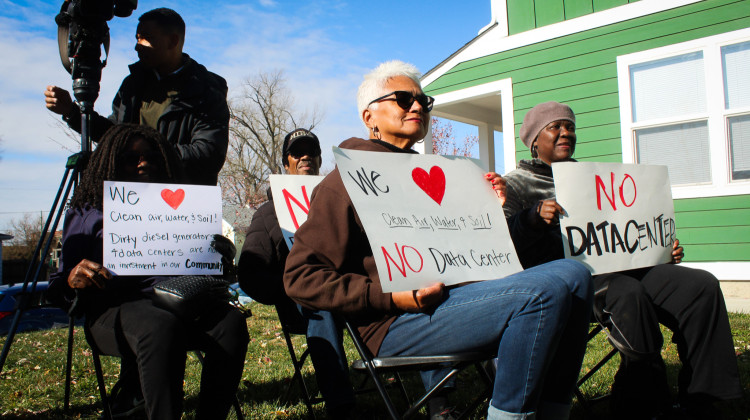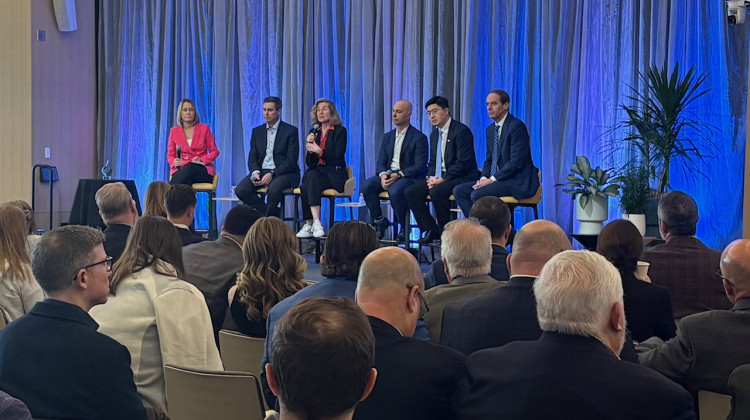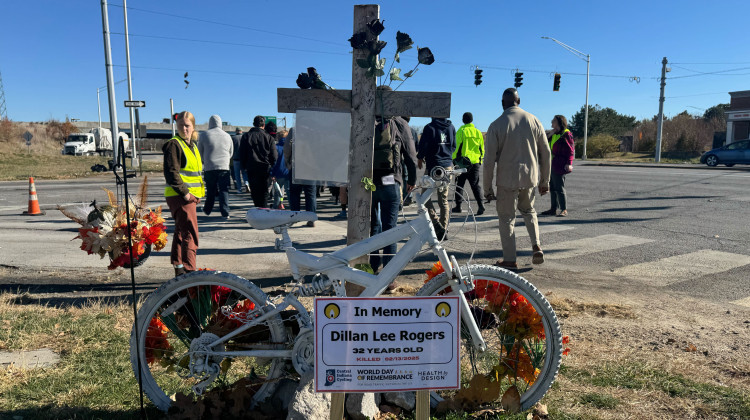Concussions and head injuries have become a central focus in football.
New rules are being enacted and research is underway to better understand how to prevent long term damage.
An Indianapolis nonprofit is helping lead the charge.
Dave Weikel is an athletic trainer for St. Vincent Sports Performance in Indianapolis and regularly works with concussed athletes.
"A concussion is a brain bruise. The brain gets bruised, like with any other bruise there is a little bit of bleeding," said Weikel. "If you continue to play and that bruise is already there and you get another hit, you can really exacerbate it and it can be fatal."
Several years ago, Weikel started collaborating with Indianapolis-based USA Football, the sport’s national governing body.
He now serves as the Head Athletic Trainer for its youth and amateur national teams.
Last year, the organization launched the Heads Up program aimed at preventing concussion through awareness, equipment fitting, heat and hydration education, and teaching proper technique for tackling and hitting.
Weikel says the program is trying to build on a cultural shift of increased attention to head injuries and concussions.
"The days of 'how many fingers am I holding up?' and 'are your ears not ringing anymore? Ok, you're good. Go back in.' Those days are long gone," said Weikel. "The more proactive we can be from the medical community in educating everybody and the more the kids, and coaches, and parents understand that this isn't an injury to try and tough up and play through, those extreme cases should be even less than they already are."
More than two dozen organizations partner with USA Football on the Heads Up program including the NFL and Big Ten Conference.
In its first year, 2,800 out of 10,000 youth leagues in all 50 states and the District of Columbia registered.
Steve Alic with USA Football says the level of participation shows that leagues are willing to adapt.
"We are talking in the first year of a national roll out, having more than 25 percent of all youth leagues who have been very successful for a long time some of these are 60-, 70-years old. They are generational for them to say this is worth doing and to have so many of those organizations say we are going to do this this year, we are going to try this, it's that important to us, that right there is changing behavior," said Alic.
He says having the football community open to changing behavior opens the door to mitigating worse problems.
"You can't prevent concussions, but you can certainly lower the risk, if not come close to eliminating a second concussion and that's where a lot of tragedies happen when it comes to brain injury," said Alic.
Alic calls Heads Up’s first full year a success.
Dr. Patrick Kersey agrees, but thinks the program is really just starting to scratch the surface. Kersey is a sports medicine physician at St. Vincent and Medical Director for USA Football.
He says increased education has added focus to the long term effects, not just the immediate impact and the next step is discovering an absolute identifier to definitively determine, right away, when an athlete is concussed.
"We don't have that yet," said Kersey. "If it's a blood test or image or whatever it may be, that says 'yes, you've had a concussion or no you have not.' Unfortunately we do not have that tool, yet."
Which is why it’s so difficult to immediately identify someone who is experiencing a concussion, even for veteran trainers such as Weikel.
"The signs and symptoms are not totally cut and dry for everybody," he said. "I've seen athletes who just get rocked and think for sure are going to be concussed and they're fine. And then, on the flipside, we've seen kids or athletes who just kind of get a glancing blow and are out for a couple of weeks."
But, he says when it comes to head injuries; trainers and medical staff error on the side of safety and sit out a kid who doesn’t feel right.
Kersey says young players have to learn it's ok to say when they don’t feel right.
"Self-reporting sometimes has a challenge because, in general, kids want to play and they don't want to come out," he said. "It may skew some decision making. Having a better understanding of the potential detrimental effects in the educational standpoint has created a significant increase in athlete's ability to self-report."
Other sports governing bodies have contacted Kersey about Heads Up.
He believes as more people go through the program, sports such as football will become safer and encourage new research to reduce the long term impact of head injuries.
"I think we will see an explosion of information that will come out making us much more educated and understanding of the injury itself, as well as the best ways to treat it," he said.
Heads Up is extending its reach by expanding to all high school and youth leagues this year; giving more players, coaches, and parents information on how to keep young people from suffering for a game they love.
 DONATE
DONATE







 View More Articles
View More Articles

 Support WFYI. We can't do it without you.
Support WFYI. We can't do it without you.